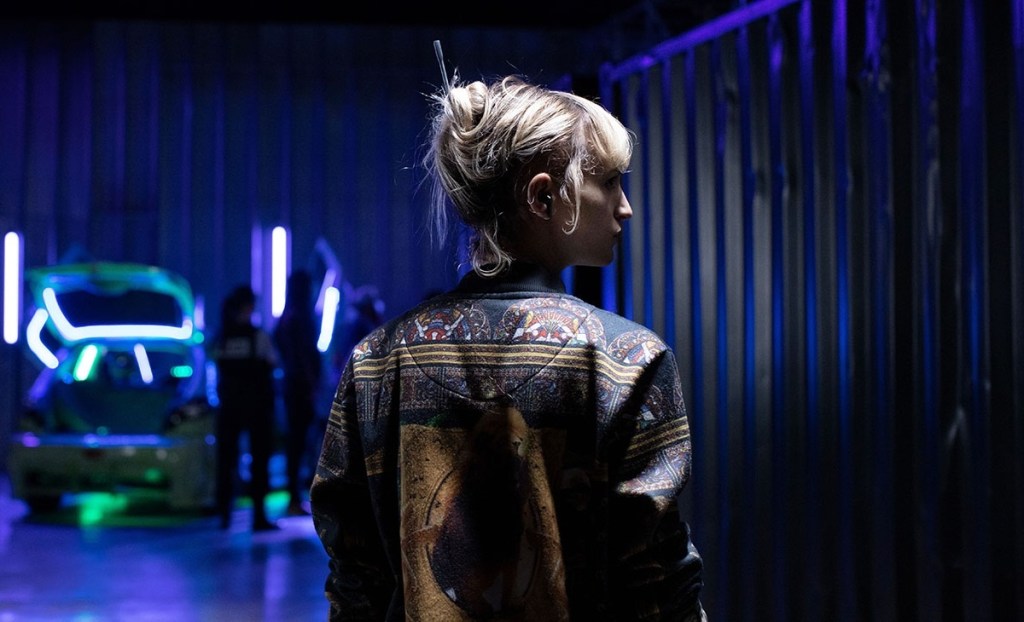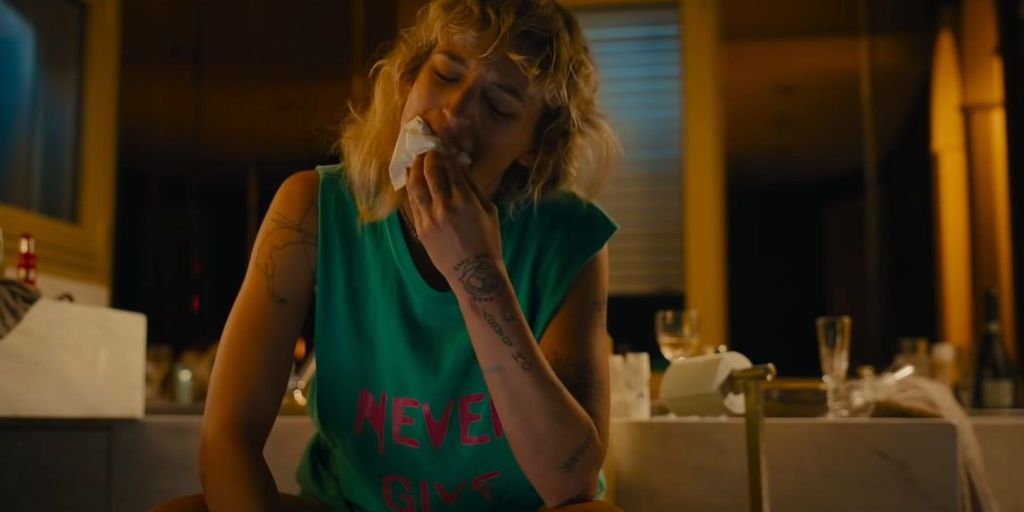Titane
Director: Julia Ducournau
Writer: Julia Ducournau, Jacques Akchoti, Jean-Christophe Bouzy
Cast: Agathe Rousselle, Vincent Lindon, Garance Marillier, Laïs Salameh, Mara Cisse, Marin Judas, Diong-Kéba Tacu, Myriem Akheddiou, Bertrand Bonello
Part of: SLASH Filmfestival
Seen on: 23.9.2021
1-gif-review
Content Note: sexualized violence
Plot:
Alexia (Agathe Rousselle) is a dancer, working at car shows and the like. She is tough, tattooed and shows off a big scar she has on her skull from a car accident. Her roughness is not just exterior. When she is assaulted by a fan, she doesn’t hesitate to stab him. But when her colleague Justine (Garance Marillier) also tries to get closer to her, Alexia has the same reaction though. And it’s neither her first, nor her last killing – and she desperately needs an exit strategy. That presents itself in an unusual option.
Titane is not an easy film, and I had to sleep over it to really get to an opinion about it – but ultimately, I really liked it. It is a wild, refractory, aesthetic film that is certainly worth watching and then discussing a lot.
Titane is a film that gives us many, many symbolic layers and they don’t always work together. That means that the film is very open to interpretation and can even be read as non-sensical in this openness. For me, though, it was an interesting take on trauma and what it does to people. The film isn’t all that interested in the reason or the event that causes the traumatization and much more in how people deal with it afterwards. In this case, Vincent and Alexia get tangled in each other, both hoping that the other will be their salvation.
In this reading of the film, the titular titanium is the strength that remains after the trauma occurs – in the sense of what doesn’t kill us makes us stronger. But it also makes us colder, harder and doesn’t necessarily save us from being hurt again. And it’s something that can be passed on to the next generation.
But, as I said, that is not the only reading of the film. Some other readings my contradict this theory, others are on a whole other level, like the questions of gender that the film also tackles. Alexia goes from hyperfeminine to masculine, while Vincent’s desperate attempts to retain his (hegemonic) masculinity in the face of his own ageing are seemingly at odds with his warm fathering. [Generally, I have to give props to Titane for the fact alone that it’s a daddy issues film that actually manages to be interesting and not run-of-the-mill.]
I found the many ways that the film can be interpreted interesting, but I can understand if you find it confusing or unsatisfying because nothing fits very neatly together here. Personally, I had issues with the ending. [SPOILERS] It felt like the film didn’t dare to let Alexia live and that’s an absolute pity. [/SPOILERS] But other than that, I was entirely with the film the whole time, caught up in its fantastic images, its great soundtrack and energy. It’s an unwieldy film about an unwieldy protagonist – and I can’t help but love that.
Summarizing: pretty awesome.



[…] She is less successful in citing attempts to subvert this construction. She mostly references her own work when it comes to trying to differently shoot sex scenes in particular, and while I can’t fault her for this impulse – and there certainly aren’t that many filmmakers who try to do just that – she could have tried a broader approach here. Plus, a few examples she gives trying to prove the general point are actually attempts to subvert it – like Titane. […]